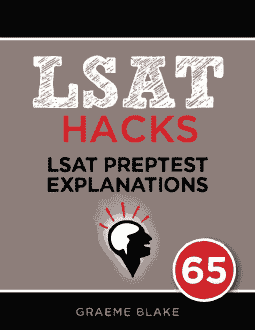QUESTION TEXT: Economist: Some critics of the media have contended…
QUESTION TYPE: Flawed Reasoning
CONCLUSION: The media critics are wrong to say that negative economic news will harm the economy.
REASONING: People spend based on their confidence in their own economic situation.
ANALYSIS: The argument ignores the possibility that negative news about the economy makes people less confident in their own economic situation. That would cause them to spend less.
___________
- This is backwards. We don’t care what causes people to think the economy is doing well. As far as we know, spending is only related to people’s confidence in their own situation.
- It would be astounding if news reports about the economy were 100% accurate. This answer just points out the obvious. It has no impact on the stimulus, which was about whether negative news affects confidence.
- This doesn’t tell us anything about people who do pay attention to media reports about the economy.
- CORRECT. Suppose negative news makes people less confident about the economic situation. This answer says that people’s lack of confidence in the wider economy will reduce their confidence in their own situation, which will make them spend less.
- This tells us what will happen if an economic slowdown occurs. The stimulus was about whether negative news could cause a slowdown in the first place.


Hi Graeme,
when I did this question, I found E very tempting and, even after reading your reasoning why it is wrong I struggled with getting fully convinced.
Finally, I thought about another, in my opinion more obvious reason why this answer choice is wrong, and thought it is worth to share here (please correct me if my reasoning is wrong):
From my point of view, this answer choice is wrong because it does not really attack the argument. It simply states another claim which contradicts the conclusion (meaning that negative news reports actually do not harm the economy). Let’s draw an analogy to make it more clear how wrong this answer actually is:
Stim: Traveler: “Yesterday, I traveled with AirFrance. During the flight, a French flight attendant was very rude to me. Therefore, most French people are very rude.”
Stem: The reasoning is flawed because the traveler…
And now, imagine an answer choice saying something like:
E) … does not take into account a very reliable study which shows that over 90% of French people are very nice.
I can also do something similar with a mathematical flaw:
1^2 = (-1)^2 –> 1 = -1 –> 1+1=0. Where is the flaw? And now, imagine this being an LSAT question and an answer choice saying something like
E) All math books ever written worldwide indicate that 1+1=2.
From my point of view, answer choice E of the question you analyzed here does something similar…
This question is a weaken question disguised as a flaw question… correct?
Would it be easier to look at “fail to consider” as weaken- or does it even matter because regardless we are dealing with a flaw?
Hmm, good question. I suppose this may be more of a weaken question, and in particular it lacks the abstract answers often found in flaw questions.
That said, I’m not sure anything turns on whether we view this as flaw or weaken. They’re both leading towards the same thing: why is the author wrong? So I agree with your second question.
I am not going to change the classification at this point (would have to do some more examination), but am not convinced it’s important.
What kind of formal flaw is this? Just lack of relevant evidence for conclusion? How I understand it, the conclusion does not follow from the premises. Thank you.
There’s not a formal name for every LSAT flaw. This one is just something like “ignoring an obvious possibility”.